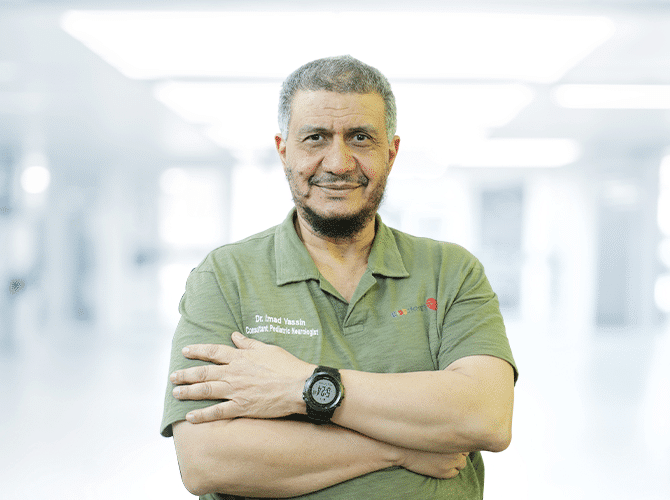Motor Tics and Tic Disorders
Motor Tics and Tic Disorders
Understanding Involuntary Movements — Without Judgment or Fear

At KidsHeart Medical Center, we meet many families who are puzzled or worried by sudden, repeated movements or sounds their child can’t seem to control.
Tics — whether motor or vocal — are common in childhood. While most are harmless and short-lived
some are more persistent or disruptive, and may be part of a tic disorder such as Tourette syndrome.
Our Pediatric Neurology team offers clear, supportive assessments to understand what’s happening — and what, if anything, needs to be done.
Available across Abu Dhabi, Dubai, and Al Ain.

What Are Tics and Tic Disorders?
Tics are sudden, brief, repetitive movements or sounds. They’re involuntary — the child doesn’t do them on purpose, and often can’t stop them even if they try.
- Motor tics: Blinking, shoulder shrugging, head jerking, facial movements
- Vocal tics: Throat clearing, grunting, sniffing, humming
Tics may appear around age 5–7, increase with stress, and often change over time.
If tics persist beyond a year or are associated with other symptoms (like ADHD or OCD), they may be part of a chronic tic disorder or Tourette syndrome.
When Should You See a Pediatric Neurologist?
Book a consultation if your child:
- Has tics that are frequent, long-lasting, or worsening
- Is embarrassed, teased, or frustrated by their tics
- Shows signs of attention or learning difficulties
- Has tics that interfere with school or daily activities
- Has sudden, complex, or intense movements or vocalizations
- Needs clarity on diagnosis and treatment options
We help separate concern from condition — and create a plan that’s practical and kind.
How We Evaluate and Support Children With Tics
Here’s our approach to understanding tic disorders:
- Detailed Clinical and Behavioral History: We ask about when the tics began, what they look like, and any triggers or patterns.
- Neurological and Developmental Examination: We check coordination, reflexes, and coexisting symptoms.
- Screening for Associated Conditions: We assess for ADHD, anxiety, or OCD if there are overlapping signs.
- Education and Observation: In many cases, understanding and reassurance are the first steps.
- Therapy or Medication (if needed): If tics are distressing or impairing, we consider behavioral therapy or medication options.
Our focus is always on function, comfort, and confidence — not just symptom control.
Why Families Trust KidsHeart
- Pediatric Neurologists experienced in tic disorders and Tourette syndrome
- Clear explanations that reduce anxiety and stigma
- Balanced approach: observe, support, and treat only when needed
- Collaborative care with psychology and behavioral specialists
- Clinics in Abu Dhabi, Dubai, and Al Ain
Because children deserve to be understood — not misunderstood.


Dr. Imad Yassin
Consultant Pediatrician/ Pediatric Neurologist – FRCPCH(UK) | Facharzt, FAMAP, Pediatric Neurology Cert (Austria)
Noticed Sudden Movements or Sounds in Your Child? We Can Help You Understand.
If tics are becoming a concern — or you just want clarity — we’re here to support you.
Frequently Asked Questions (FAQs)
No. Most tics are temporary and harmless. Evaluation helps decide if further steps are needed.
Yes. Tics often increase with anxiety, fatigue, or excitement.
Many do. Tics can come and go, especially in early childhood.
Only if tics are severe or affecting daily life. Behavioral therapy is often very effective.
No. Tics are involuntary — they’re not misbehavior or attention-seeking.

